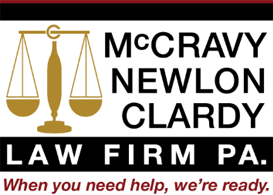Healthcare workers provide vital services to the community, so any injury these workers suffer can have negative effects on community health. According to government statistics, healthcare is one of the most dangerous professions, on par with construction and manufacturing. Contact McCravy, Newlon & Clardy to talk with a Spartanburg workers’ compensation lawyer about any at-work accident or injury you have suffered. You might qualify for benefits.
Injuries by the Numbers
The Bureau of Labor Statistics (BLS) reports that healthcare has a higher injury rate than construction and manufacturing.
That is surprising to many. What is the most common type of injury experienced by healthcare workers?
Overexertion Injuries
Nurses and other staff members frequently injure themselves through overexertion, including lifting and moving patients.
Staff must reposition patients regularly so that they do not suffer compression ulcers, also called bed sores. Lifting patients who often weigh more than 200 pounds can lead to strains, sprains, and other overexertion injuries. Many workers are not taught how to lift properly, or they work long hours, with 12-hour shifts common.
According to the BLS, overexertion injuries made up roughly 45% of injuries in private and public hospitals. This was by far the most common type of injury in those settings.
Pay attention to any pain after a strenuous day at work. Strains and sprains can lead to swelling, discomfort, and muscle weakness. You might be tempted to “push through” and continue working, but these injuries usually require rest.
Falls
Healthcare workers are also injured when they fall, often due to a slip or trip. Workers might slip on spilled liquids or pieces of paper on the floor, or they might trip over boxes or power cords. Hospitals are often chaotic, and staff members run around without being able to give sufficient attention to where they step.
After falling, a worker can suffer concussions, fractures, back injuries, neck injuries, and more when they hit the ground. Nurses and other workers usually need time off from work to let these serious injuries heal. A concussion, for example, might keep a worker at home for months, resting. BLS data shows that falls represent around 25% of hospital injuries.
Violence and Intentional Injuries
Health care workers are also victims of violence. The BLS identified this as the leading cause of injury in state-run hospitals.
Patients might attack a nurse, doctor, or nurse’s assistant. Violent attacks are a real possibility in nursing homes, with many dementia patients being unable to control themselves. The same is true in state-run psychiatric wards. But any healthcare worker could be attacked in a healthcare setting where emotions run high.
Health care workers can suffer traumatic injuries in these attacks, including concussions, bruises, fractures, and facial injuries. They might also struggle with emotional distress or possibly even post-traumatic stress disorder.
Exposure to Harmful Substances
This is another leading cause of worker injury. Workers can become exposed to germs and viruses from patients, coming down with the same illnesses they are treating. Or they might be exposed to toxic chemicals in the health care setting.
The BLS found that around 4% of injuries in private hospitals involved this type of exposure. About 5% of injuries in local public hospitals also involved harmful substances.
Transportation Accidents
Emergency medical personnel can get hurt when their ambulance is involved in a crash. These accidents represented a small number of accidents, only around 1% in private hospitals. However, motor vehicle accidents can lead to more serious injuries than simple overexertion. A motorist might struggle with life-altering injuries, including serious brain injuries.
Healthcare Workers’ Compensation after an Accident
In addition to asking “What is the most common injury for healthcare workers?” people also want to know about possible compensation. Can a health care worker receive a settlement following an attack or accident?
The answer is typically “Yes.” Injured healthcare workers can usually request workers’ compensation benefits for an on-the-job injury, including those related to overexertion, falls, violent attacks, and motor vehicle wrecks.
South Carolina’s workers’ compensation benefits are no-fault. Injured workers usually receive free medical care and a portion of lost wages if they need to take time off work. The amount someone receives will depend on the worker’s average wages and other factors.
Can You Sue for Workplace Injury?
The answer depends on the injury and who is responsible for it. Under South Carolina law, a worker is usually prevented from suing their employer. That prohibition applies even when an employer cuts corners or is lax when following safety standards.
However, workers can often sue someone else. For example, if you are an EMT injured in a car crash, you might sue the driver who struck your ambulance. A negligent driver would be liable for damages caused in the crash.
A healthcare worker attacked by a patient or a patient’s family could sue the attacker. This is a type of tort claim you can make for compensatory and punitive damages.
The lawyers at our firm always check if you can bring a personal injury lawsuit. There are definite benefits to doing so. You can receive full compensation for lost wages, as well as damages for pain and suffering and mental distress. Sadly, workers’ comp provides nothing for general damages like pain, and lost wages are limited.
Contact Our Office to Speak with a Spartanburg Workers’ Compensation Lawyer
Health care workers provide critical services to the community, and they deserve to be safe on the job. Unfortunately, thousands of workers in South Carolina are hurt each day in a hospital, nursing home, or private health clinic. Injured workers often struggle to take care of their needs and require high-quality care so they can recover and return to work.
Reach out to McCravy, Newlon & Clardy to speak with a member of our team. We have experience filing workers’ compensation claims, and we also have a deep personal injury practice if you need to file a lawsuit against a non-employer.

